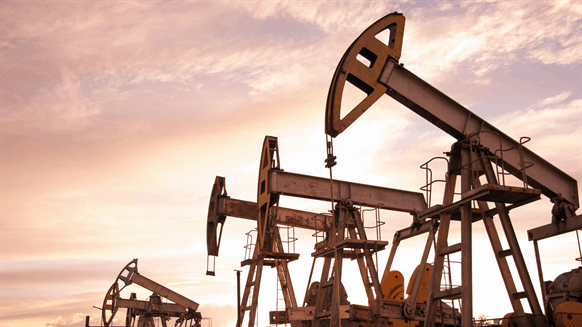Shell Plc’s new chief said cutting oil and gas output would be bad for consumers, echoing a pivot by other major producers to fossil fuels and energy security.
“I am of the belief that the world will need oil and gas for a long time,” Shell CEO Wael Sawan said in an interview with Times Radio on Friday. “As such, reducing oil and gas production is not healthy.”
Europe’s biggest energy majors are increasingly echoing the strategies of their less climate-friendly US peers and leaning towards oil and gas businesses that generated record profits last year and payouts to their shareholders.
BP Plc, Shell’s closest peer, said last month it would slow down a planned decline in its oil and gas output to ensure reliable energy supplies after the disruption caused by Russia’s invasion of Ukraine. The company’s shareholders applauded the news, sending BP shares up around 17% since the announcement.
The renewed emphasis on fossil fuels follows a year of high and volatile prices after Russia’s invasion disrupted gas supplies and the recovery of economies from the Covid-19 pandemic boosted demand for oil.
“We have seen, of course, until 2022 the fragility of the energy system,” Sawan said. “Seeing prices start to skyrocket, that’s not healthy for anybody, especially consumers.”
But at the same time, CO2 emissions rose to a record last year, meaning the world will have to move even faster if it is to meet its climate goals and avoid the worst impacts of global warming. To do so would require a sharp reduction in demand for oil and, eventually, for gas as well.
Under Sawan’s predecessor, Ben van Beurden, Shell had a target of cutting oil production by 1% to 2% a year, a pace it has more than achieved. Much of these declines are attributed to a reconfiguration of Shell’s production portfolio to eliminate lower margin assets. That focus will continue under Sawan, who is committed to increasing shareholder value.
“We focus on value over volume,” Sawan said. “So it’s not about how many barrels we’re producing, it’s about the margin we’re extracting from the barrels we’re producing.”
Sawan said the company remains committed to a strategy to invest in both oil and gas, as well as low-carbon and zero-carbon technologies.
Shell fell 0.4 percent as of 8:36 a.m. in London trading, paring this year’s gain to about 12 percent.


